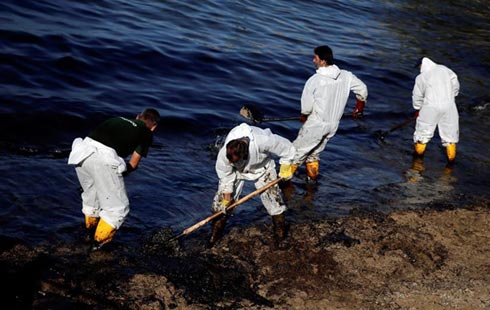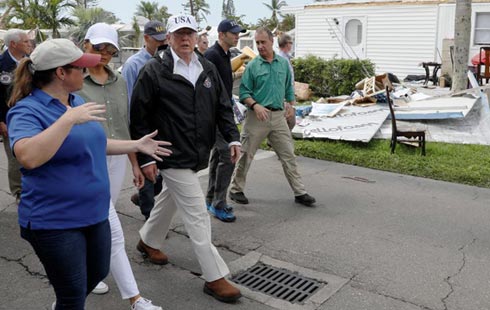EU treads political path to Korean Peninsula resolution
The European Union will continue its "work of pressure" aiming to create a political solution to the Korean Peninsula crisis that was mainly triggered by the Democratic People's Republic of Korea (DPRK)'s nuclear test, said the bloc's foreign chief on Tuesday.
Federica Mogherini, Vice-President of the European Commission, addressed the European Parliament plenary hours after the United Nations Security Council unanimously adopted a resolution to impose fresh sanctions on the DPRK over its nuclear test on Sept 3, in violation of previous Security Council resolutions.
"Of course, sanctions are not a goal in themselves ... our objective is not the pressure alone, but to open the political path for a solution of the crisis," said Mogherini. "And for the Europeans, economic and diplomatic pressures are always aimed at opening channels for credible, meaningful and fruitful dialogue."
To bring the DPRK back to the negotiation table, Mogherini said she has been moderating closely with key players such as China, Russia, the United States and Japan to achieve international unity in solving the crisis.
China has put trust in the EU to help solve the issue as well. In recent days, President Xi Jinping has called German Chancellor Angela Merkel and French President Emmanuel Macron, exchanging views on the crisis, before the UN Security Council made the decision to level more severe sanctions, including controls on crude oil imports.
Mogherini said the EU will continue the discussion it launched last week on additional European sanctions, to complement the action decided by the Security Council and put maximum pressure on the DPRK.
But she also said that the union will continue to work to open a credible political path toward the de-nuclearisation of the Korean Peninsula. "It will be one of the core issues also of my agenda in New York next week, at the UN General Assembly ministerial week," said Mogherini.
Men Jing, professor of College of Europe in Belgium, said European Union has some advantages in helping mediate because crisis intervention is high on its global agenda and it has a wealth of experience in international diplomacy.
"I think countries in Eastern Europe, such as Poland, can play a role in helping offer solutions to the nuclear crisis the Korean Peninsula," said Men. "But we must realize that the Korean Peninsula crisis is highly complex."
In her address, Mogherini pointed out that the European Union has seven member states that have embassies in the DPRK and it has humanitarian programs running in the country.
"What we need is to create the conditions in the international community with all our partners, including with the European Union, to create the conditions for credible and meaningful diplomatic negotiations," she said.
fujing@chinadaily.com.cn
- EU seeks political solution to Korean Peninsula crisis
- Beijing won't allow peninsula to 'descend into war and chaos'
- Talks only option for peninsula
- Xi exchanges views with Macron over Korean Peninsula, bilateral ties
- Xi, Merkel discuss Korean Peninsula
- US needs to consider all affected by peninsula






















